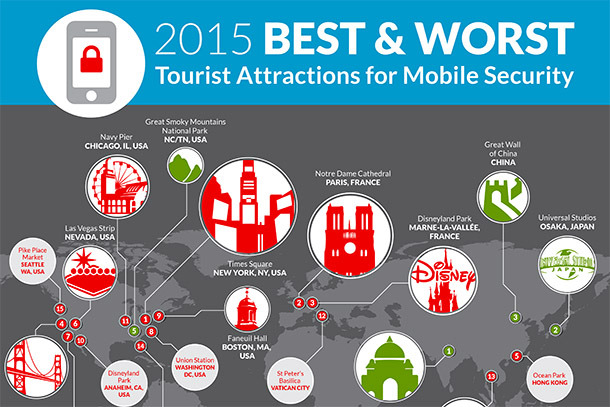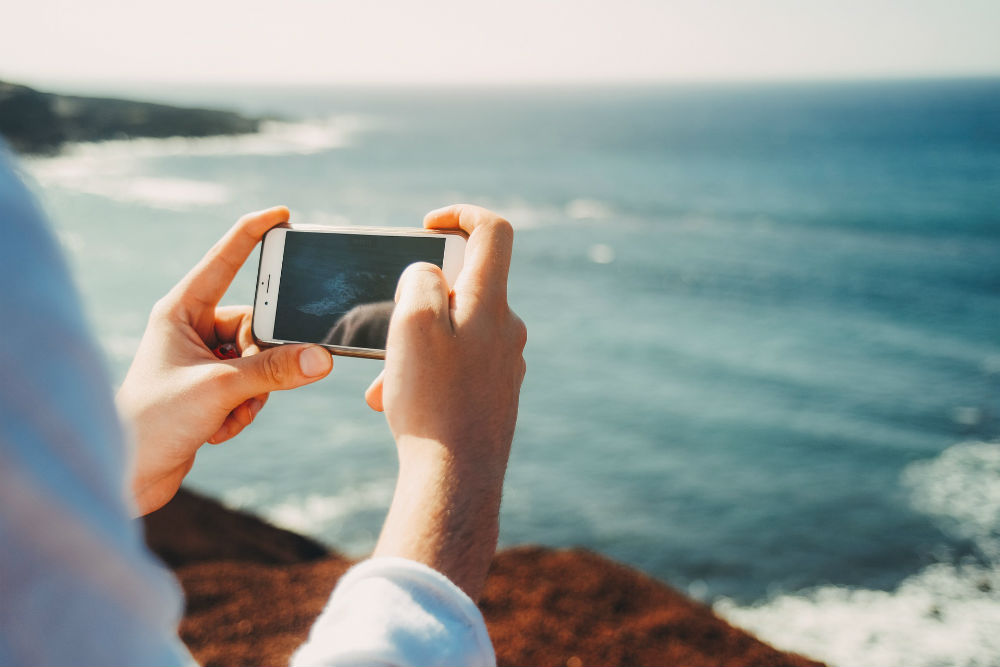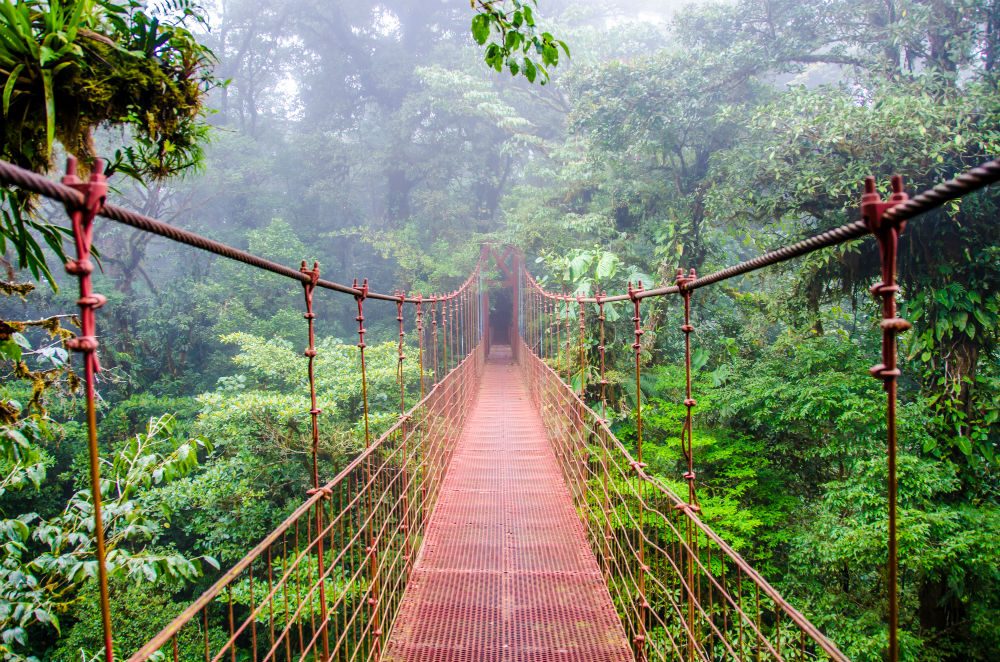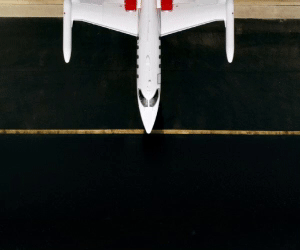Why You Should Think Twice Before Connecting to Wi-Fi When Traveling
 The best and worst tourist attractions for mobile Wi-Fi security. Photo: Skycure
The best and worst tourist attractions for mobile Wi-Fi security. Photo: Skycure This article originally ran on Smarter Travel
These days, traveling is almost impossible without a mobile Internet connection. Between Google Maps, TripAdvisor, Yelp, and other booking and review-based apps and websites, you need your phone to get the most from your trip.
And with international data packages so expensive, you might think a cheap or free Wi-Fi connection is your best bet. But maybe not. Mobile threat defense company Skycure says you should disconnect when traveling in certain high-risk destinations. Here’s why.
Skycure studied the world’s top tourist destinations (based on data from Travel + Leisure) from June 2014 to June 2015 to determine the places most frequently targeted by malicious networks. Times Square in New York City topped the list with the highest threats, followed by Notre Dame Cathedral in Paris and Disneyland Paris. The full list of tourist attractions with the highest risks is below.
Times Square, New York City, NY
Notre Dame Cathedral, Paris, France
Disneyland Paris, Marne-la-Vallee, France
Golden Gate Park, San Francisco, CA
Ocean Park, Hong Kong
Las Vegas Strip, Las Vegas, NV
Hollywood Walk of Fame, Hollywood, CA
Union Station, Washington, D.C.
Faneuil Hall Marketplace, Boston, MA
Disneyland Park, Anaheim, CA
Navy Pier, Chicago, IL
St. Peter’s Basilica, Vatican City
Grand Palace, Bangkok, Thailand
Disney World’s Magic Kingdom, Orlando, FL
Pike Place Market, Seattle, WA
Where is your network the most secure? Places with remote connections and restricted mobile phone use. The Taj Mahal in India, Universal Studios in Japan, the Great Wall of China, Sydney Opera House, and Great Smokey Mountains National Park round up the top five safest spots to connect to a Wi-Fi network.
Also from Smarter Travel: Best Apps to Prevent Travel Disasters
Android v. iPhones
In a separate study, Skycure found that Android devices were twice as likely to encounter a threat compared to iPhones. According to the study, iOS devices will connect to more Wi-Fi networks overall, but Android devices connect to more malicious networks.
How to Stay Safe
Follow these quick tips if traveling to high-risk destinations:
- Avoid “Free Wi-Fi” networks (8 percent of the total reported threats came from a network with “Free” in its name).
- Read warnings on your device before agreeing to Terms and Services.
- Make sure your device is updated to the most current operating system.
- Disconnect from a network if your phone has erratic behavior, i.e. frequent crashes or if you receive any warning messages.
- Download a mobile security app.
Click here to download the full infographic from Skycure. Click here to download Skycure in the app store.
Also from Smarter Travel: The 8 Best (and Worst) Travel Apps










Very simple solution a good article would have mentioned. Use a VPN.
As a Trusted Travel Expert for Wendy’s WOW List, I have experienced major changes in WiFi capability when on safari in Africa the past few years. Some Countries have fairly good connectivity in their camps and lodges and those include: Kenya where that huge tree in the distance might in fact be an Antenna not dissimilar from what we see here in the States and we have experienced decent WiFi at almost every safari property in Kenya. . In Tanzania on the Northern Circuit WiFi has improved steadily and although the signal might not be perfect you can count on having something when in most camps and lodges. South Africa is very connected as most camps and lodges are on Grid Electricity and can offer very good WiFi services. Botswana is far behind with this and only recently have a few of the very upscale properties begun to offer WiFi in certain areas of their camps to the guests. But this is improving as guests need to be connected to work or home and we find will ask us about the ability to connect before booking a property. Under this pressure, Botswana camps and lodges will, we predict, in the upcoming year or two have to add this service to their properties due to guest demand. They hate to join the 21st century as many in Botswana feel that to be on safari is to be away from the world’s daily pressures, but the clients often feel quite differently. In conclusion, even African Safari will soon be totally connected to the outside world and you will be able to know that wherever you might be if you need to “call home” or check with the office, you can. And, if you want to leave your devices home and enjoy the African Wilderness in a more pristine way, you can do that as well.